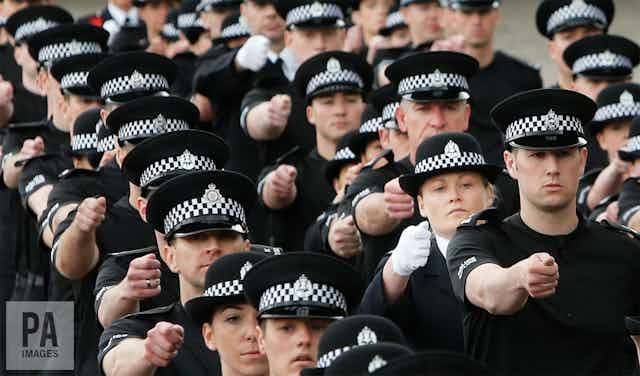The announcement of the temporary suspension of Scotland’s Chief Constable, Phil Gormley, as he took “special leave” last week was yet another bolt of lightning from the storm-hit Police Scotland. The move was announced when it was revealed that Gormley faced a claim of gross misconduct from a colleague.
The Chief Constable was already facing a misconduct complaint made a few weeks before. He stayed in post at that point, stating that he “was focused on leading Police Scotland”. This became unsustainable as the second complaint emerged. First Minister Nicola Sturgeon backed Gormley’s decision to take leave.
Gormley has only been in post since January 2016 and was seen as a relatively safe pair of hands following the controversial first Chief Constable Stephen House, who retired early following the introduction of aggressive policing techniques in the form of stop and search and the deployment of armed officers in particular.
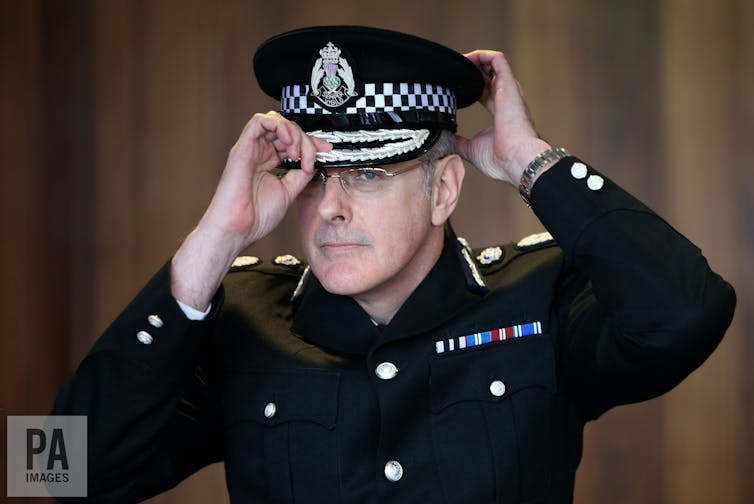
Although given the task was to break with the old regime, it always seemed odd that Gormley came from a similar professional background to House, spending most of his career in the London-based Met – a very centralised and powerful force partly designed to protect the British state, which operates under a different legal system. A Scottish-trained officer was not seen as an appropriate replacement.
English police forces in general have a much more localised approach. In fact, the UK Government introduced the election of Police and Crime Commissioners which are regionally based and work alongside Chief Constables, providing a localised and accountable focus.
Institutional malaise
Yet as strange as it seems, the temporary resignation of the “top cop” in Scotland is almost the least of the issues which Police Scotland faces; an underlying crisis in the governance structures has rumbled on for months and seems no closer to resolution.
This can be directly linked to the creation of a unified police force in Scotland in 2013 after centuries of local policing. Prompted by budget cuts, eight police forces were merged into one and new structures were established. This required political endorsement from the majority SNP government elected in 2011, which had previously opposed plans for centralised policing.
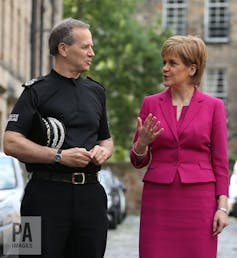
One of the reasons there was (and remains) opposition to a unified force was the dismantling of local links. Historically, there was a balance of accountabilities between Scottish local authorities, central government and the internal managerial structure of the regional police services.
The local police boards were replaced by a central Scottish Police Authority (SPA) – not staffed with councillors but unelected government-appointed members. This inevitably gave the impression of a move away from localised, community-based policing to a central force much closer to government.
In fact, the Scottish Justice Minister Michael Matheson has had to intervene directly over policing issues in a way which is unprecedented for any government minister anywhere in the UK. In a Scottish Parliamentary debate held this week in response to the Gormley announcement, Matheson had to give backing “to the strong and resilient command team in Police Scotland”. He sounded more like a chairman of the board of an embattled football team than an independent government minister overseeing policing.
Resignation after resignation
Reflecting both its novelty and the lack of clarity around its role, the SPA has not proven to be a stable ballast for the chaotic machinations at the top of Police Scotland. In fact, the opposite is true. In June this year, chair of the SPA Andrew Flanagan resigned from his post over issues of secrecy and transparency just two years into his four-year role.
It was the undertaking of a governance review of Police Scotland – ordered by the First Minister in the wake of Stephen House’s controversial initiatives – that revealed the fundamental vacuum of accountability at the heart of Scottish policing.
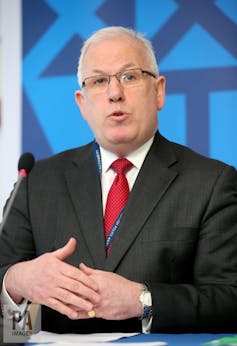
Flanagan quit after a damning report by the Scottish Parliament on his handling of the resignation of SPA board member and experienced public accountability campaigner Moi Ali. During a public discussion of governance, Ms Ali questioned the idea of the SPA (a public body) holding its meetings in private.
Flanagan challenged Ali over raising these issues in public, claiming it undermined “collective responsibility” and questioned whether she could remain as a member. As a result, Ali resigned from the authority which seemed to undermine the whole issue of transparency and openness.
How did this happen?
The question now seems to be why are these fundamental issues of governance and accountability only now are being exposed, and with such serious consequences? This debate should have occurred before a centralised police force was established four years ago.
What is becoming clearer is that in the rush to introduce the unitary Police Scotland, little time was devoted to looking at lines of accountability and responsibility. Stephen House took advantage of this vacuum to push through his controversial initiatives which forced the Scottish Government to intervene. This left the authorities struggling to catch up, and get used to sights such as armed police in rural places like Inverness.
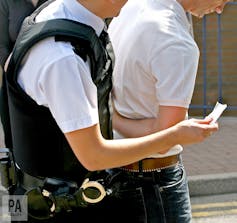
Now we are left with two of the main institutions of Scottish policing with no permanent leadership at the same time – an unprecedented situation. Flanagan has still not been replaced and all opposition politicians have called for this role to be appointed by the Scottish parliament.
Such a unified approach is unusual in the polarised world of Scottish politics, but the Scottish government has resisted the call so far, pointing out the legislation only allows them to appoint the chair of the Scottish Police Authority.
The investigation of the complaints against Gormley are still ongoing as he begins his temporary leave. The search for a chair of the SPA has not been completed and it is unclear how or when they will be appointed.
The institutional malaise around Police Scotland is not going away any time soon, and for people concerned with issues of good police leadership, governance and accountability, that is bad news.

